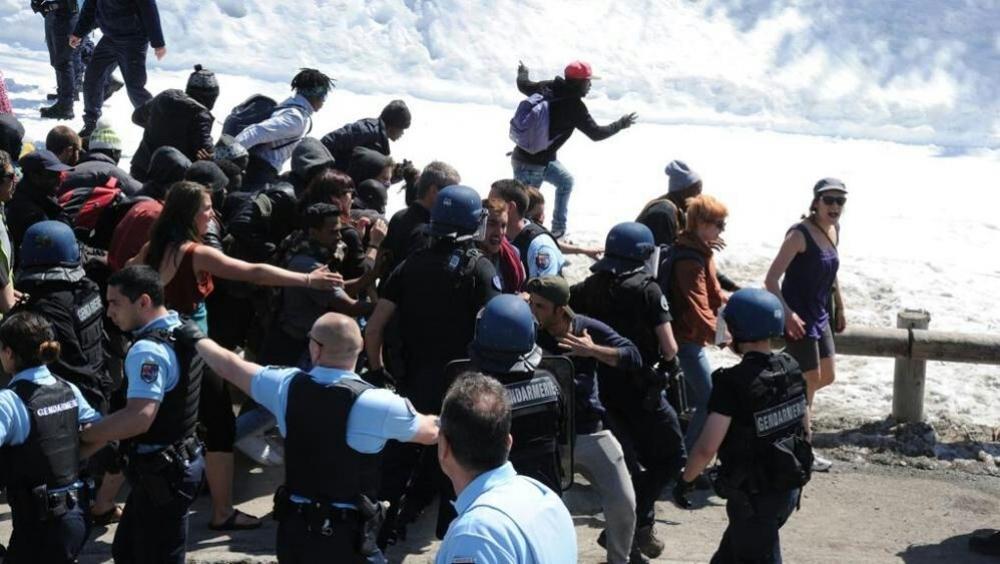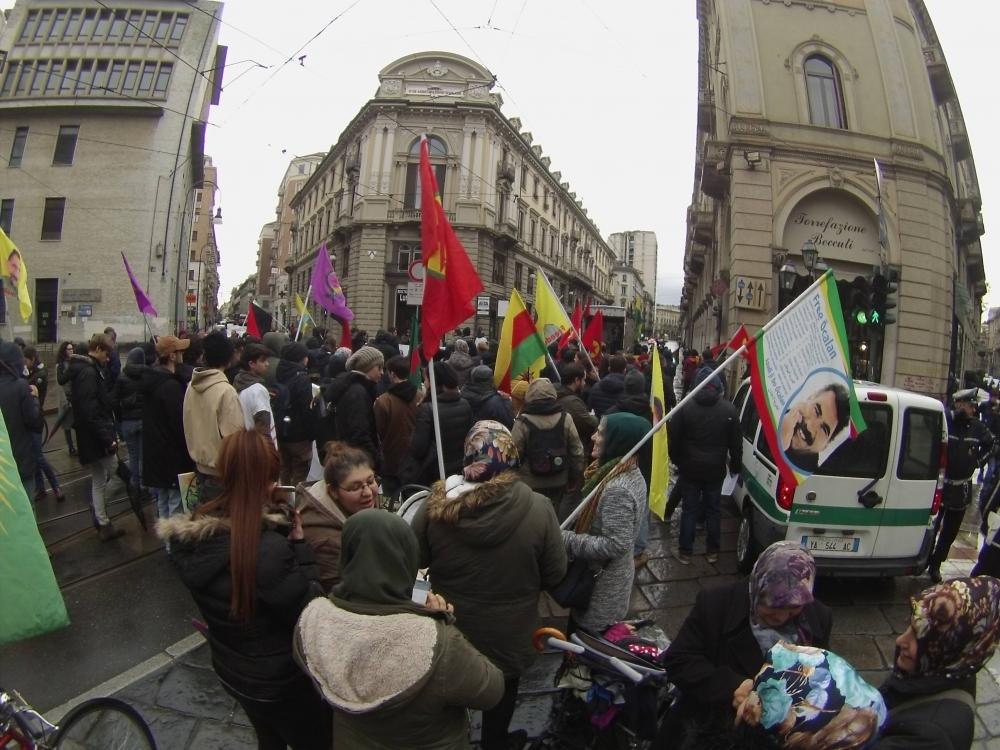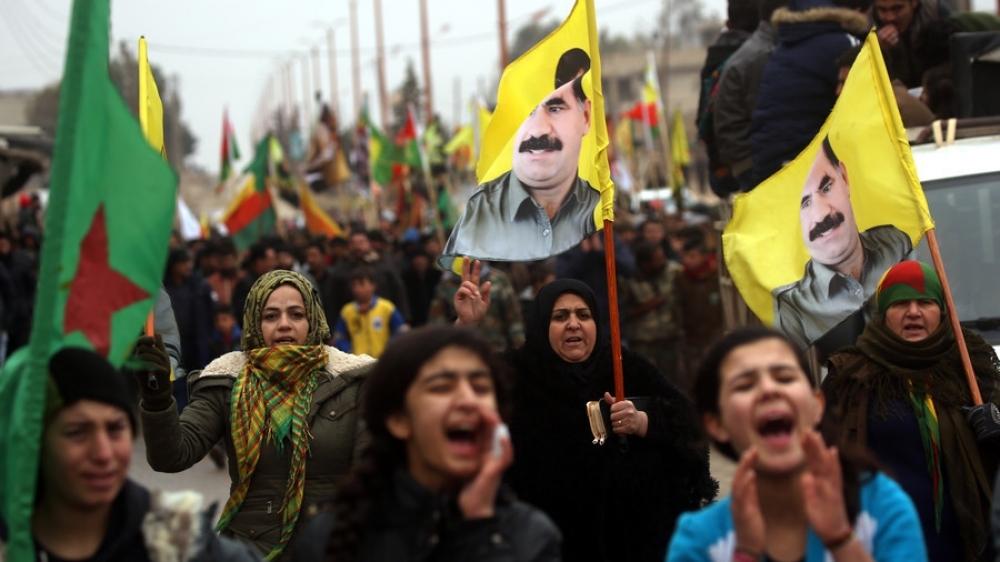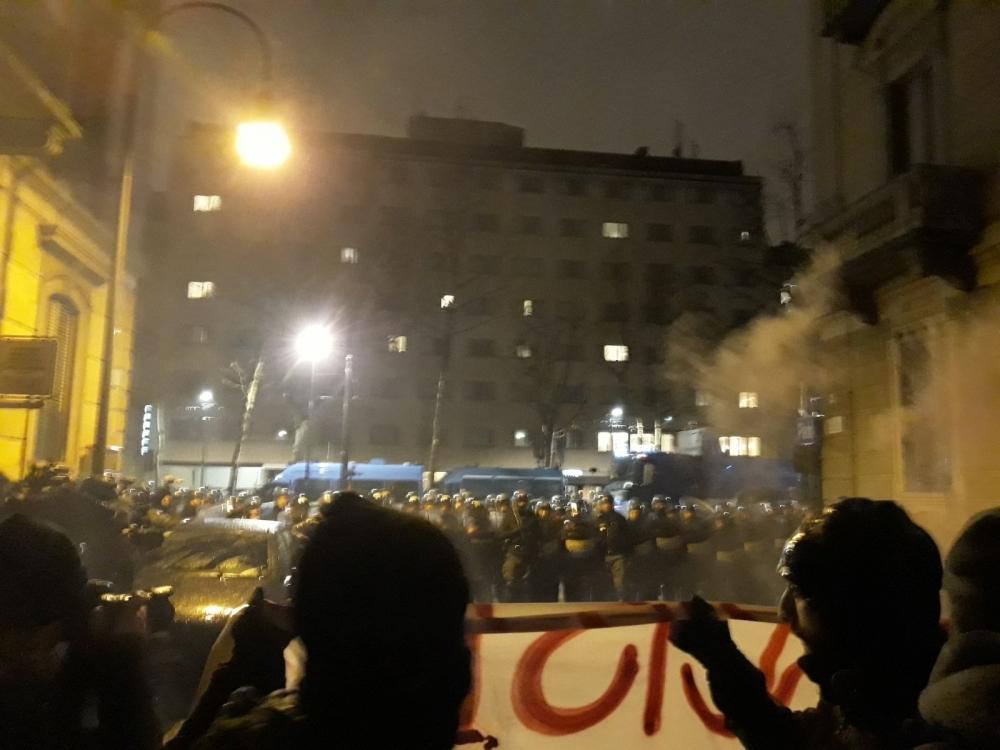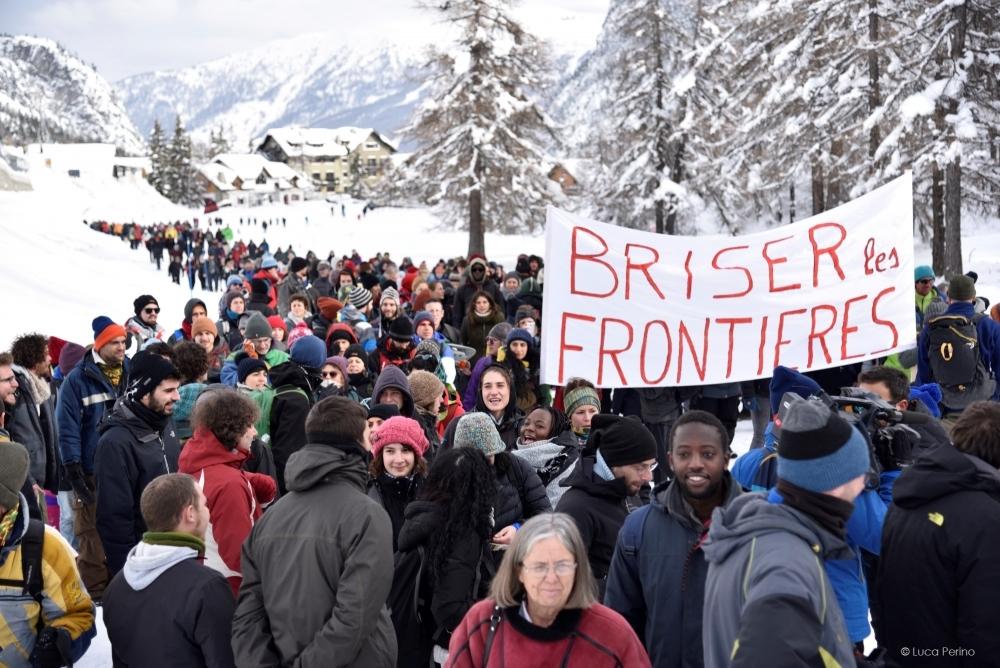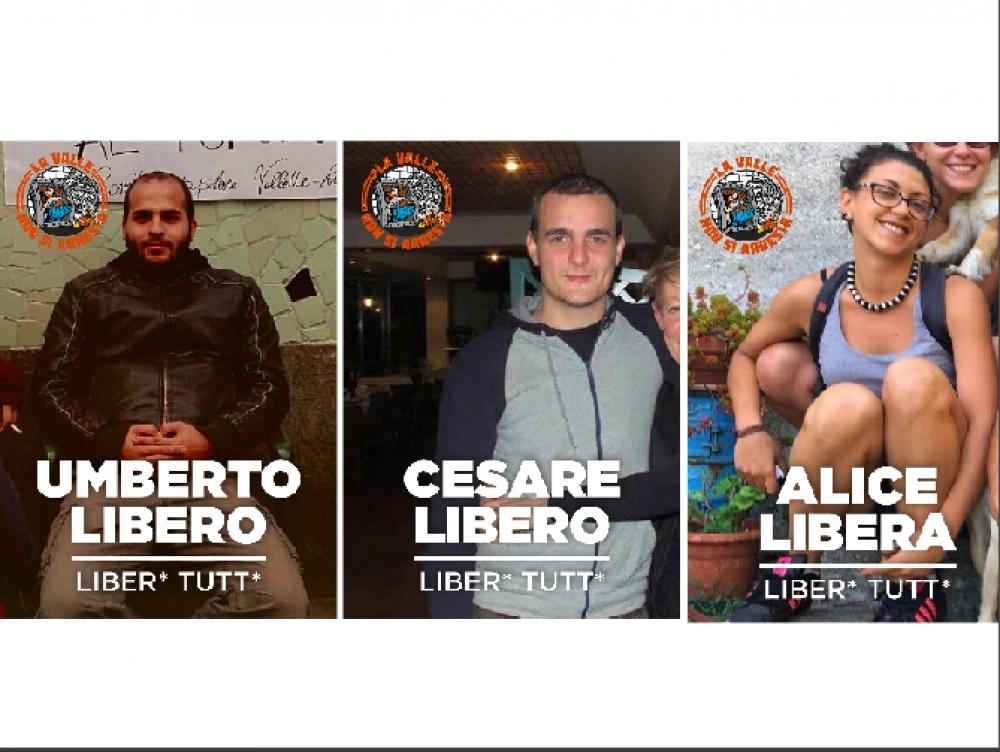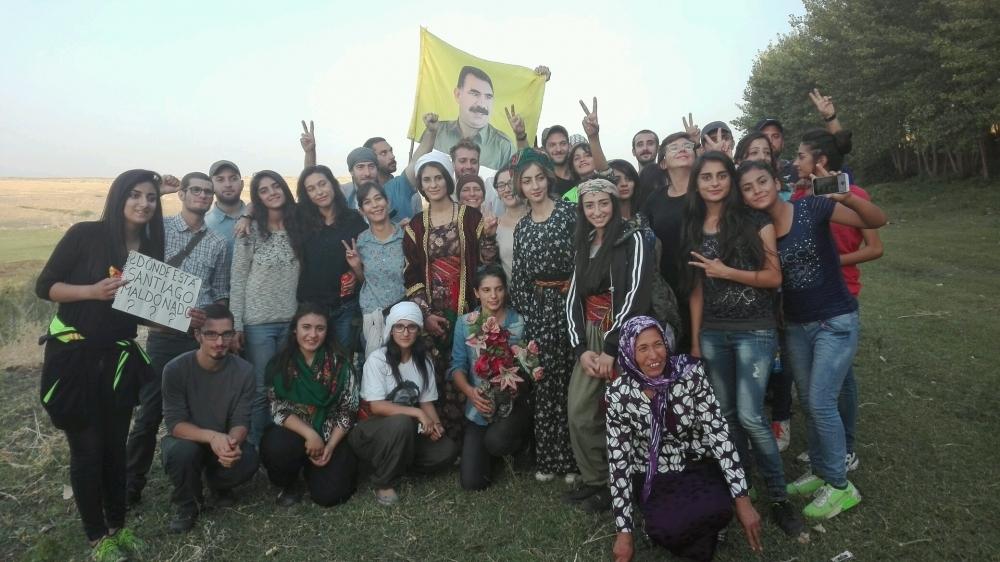
Greece, austerity and the questions to pose
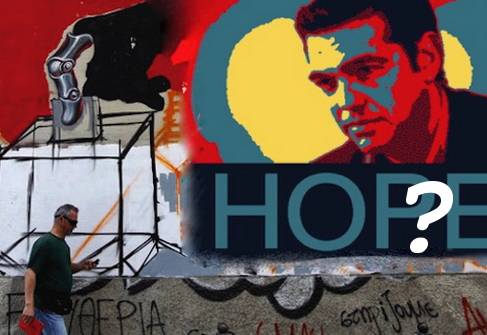
With respect to Athens, for those who look to it, feel empathy and see there an unfolding development, the day of Wednesday maybe contributed to “get the feet back on the ground”. The reunions of Syriza, the “Coalition of the Radical Left”, divide and break themselves, and its project seems to collapse, crushed by the weight of the violence unleashed on the country and by a “formal” limit.
The minister of finances Tsakalotos declares “We did not have any choice” during the session of the parliament that was called up in order to vote the new tranche of austerity. Contrarily to what someone did think a short time ago, far from being over, the austerity remains a strategical perspective for a hegemonic part of the collective capitalist in this sector of the world. And the (probably accidental) sentence of the minister cannot but be put in relation with the famous T.I.N.A. (There is no alternative) of Thatcherite legacy.
Society must be dissolved, and the conflicts erased. With the different gradations and the violent changes implemented during the last decades, these remain the end of the line we are running on. With frantic pace and now potentially surging, with a repertoire that taps all the old and new tools of the class struggle (one that is driven from above, ça va sans dire).
Syriza melts down in internal wars and cults of personality, crushed within unquestionable patterns of freedom to act reduced to the minimum. We are in for an obvious statement, but in the contemporary world (and for quite some time now…) the taking of the government is not equivalent to the taking of power. Which is pronged, social, widespread and at the same time articulated on different geographic scales. The metamorphosis of a political form, being it a “traditional” party or a government is surely theoretically possible, but it is a rare thing, that requires hazards and leaps. Some forms have penetrable borders, other ones probably not.
The scenarios are open and in movement, of course, but for those who want to pose themselves the problem of an “alternative” (and not limiting themselves to differently govern the existing state of things), the unavoidable patterns, that were traced by others than Syriza (which is moving within them) have something to say about those forms and a lot beyond them. Certainly, someone could say, if the election in Spain were now, if in other countries…we will be trivial even here, but history is not made by “ifs” and “buts”.
In the streets of Athens, a municipality of 650 thousands of people and a pole of convergence of a wide conurbation that reaches 4 millions of dwellers (more than a third of the entire Greece) other political forms retook the streets, too, with strikes and clashes. This State, as big as Lombardy but with a very different weight, was then crossed again, last Wednesday, also by claims that did seem quelled for a long time.
As always, besides those who cheer from outside the field, it is worth to undertake an analysis, not limited to the discussion of practices and events, but focused on the processes and the possibilities. Explosive hypotheses, adequate to endure the level of the confrontation, over there as well as here, have yet to come. It is increasingly necessary to reason about inadequacies and limits, in order to circumvent, exceed, break them down.
But it is important to be clear also about this: for those engaging in the daily practice and in the perspective of an overturn of actual power balances in the “society”, in the territories, towards the passing of an age (and it has not to be absolutely stated – quite the opposite – that this is the perspective of most people), it is a boring waste of time to be more Catholic than the Pope when coming to defend Tsipras, criticize his limits as strategist or rejoice for an outburst. It is enough to leave these approaches to the columnists.
How to do not make the feet on the ground of the struggles ephemeral appearances but lasting processes of counterpower, to wrest resources for the struggles against the counterparts, to build patterns of autonomy, experiments, concrete hints to other forms of life…these are the themes, these the questions that concern us and that we should address to ourselves; and that, starting from the analysis of what happened during these weeks – and with our gaze always on the processes of transformation beyond the State and the classical frameworks of sovereignty – we should delve into, in order to make them useful for the daily action on our territories.
Ti è piaciuto questo articolo? Infoaut è un network indipendente che si basa sul lavoro volontario e militante di molte persone. Puoi darci una mano diffondendo i nostri articoli, approfondimenti e reportage ad un pubblico il più vasto possibile e supportarci iscrivendoti al nostro canale telegram, o seguendo le nostre pagine social di facebook, instagram e youtube.












